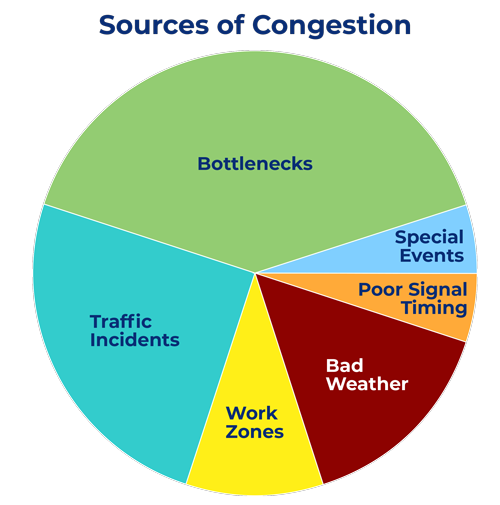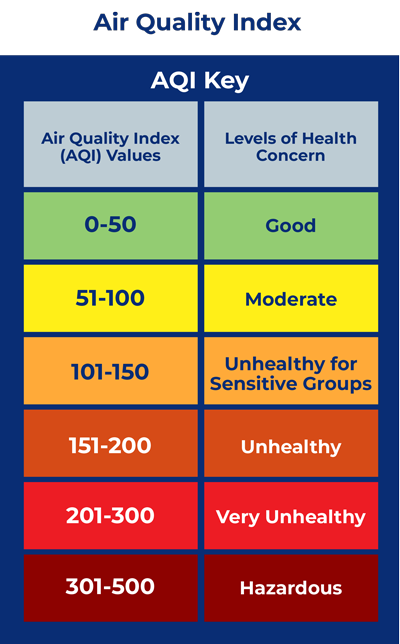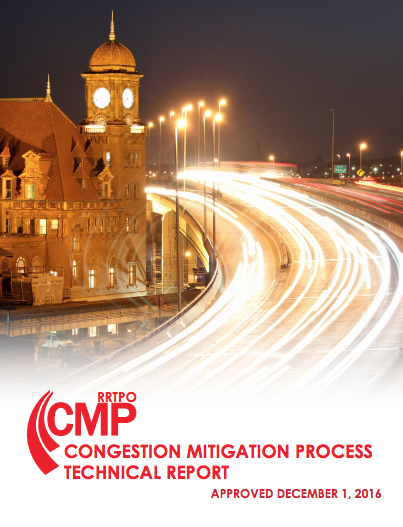Core products
Congestion & Air Quality
Congestion
The Congestion Management Process (CMP) is a systematic and regionally-accepted approach for managing congestion that provides accurate, up-to-date information on transportation system performance and assess alternative strategies for congestion management that meet state and local needs. The CMP is intended to apply such strategies to capacity increasing projects and improvements and transition them into the funding and implementation stages for major corridors identified in the CMP roadway network.
The CMP Technical Report is an evaluation of the current conditions of the Richmond Region’s transportation network in terms of operations and safety. The data collection and analyses of trends and conditions of the regional roadway network help evaluate areas of need in order to reduce congestion issues and improve the level of safety for commuters. Strategies are also identified for use in congestion mitigation and safety on the roadway transportation network.
Federal regulations require that a CMP be in place in all Transportation Management Areas (TMAs) or urban areas over 200,000 in population. It must be implemented as a continuous part of the metropolitan planning process, which includes the Metropolitan Transportation Plan (MTP), the Transportation Improvement Program (TIP), and the Unified Planning Work Program (UPWP).
The development of the CMP Technical Report involves extensive data collection for performance measures such as travel time index, level of service, and total crashes. Identification of major corridors for analysis and inclusion in the CMP Network is also reviewed by localities, state and federal transportation agencies to evaluate current conditions of the transportation roadway network and efficiency of operations and safety within the regional network. Congestion mitigation strategies are also identified and evaluated for application in the Richmond Region for implementation and use on projects and improvements.

Air Quality Plan
The Richmond-Petersburg Area was previously designated a nonattainment area under the 1997 ozone standard and later a maintenance area before being designated an attainment area under the 2008 ozone standard. The area is currently in attainment for all standards including the 2015 ozone standard.
In February 2018, the D.C. Circuit Court issued a decision in South Coast Air Quality Management District v. EPA which impacted areas like the Richmond-Petersburg Area that had been designated nonattainment and/or maintenance under the 1997 ozone standard but designated attainment under the 2008 ozone standard. One of those impacts is that new, updated, or amended Transportation Improvement Program and Long-Range Transportation Plan must demonstrate conformity in keeping with the anti-backsliding requirements associated with the revocation of the 1997 ozone standard.
On September 25, 2018, FHWA transmitted a copy of the final report of the Transportation Conformity Analysis prepared for the for the FY 2018-2021 Transportation Improvement Programs and 2040 Long-Range Transportation Plan prepared by the RRTPO for the 1997 ozone standard. The conformity analysis was prepared in accordance with EPA's November 24, 1993, Final Rule on Criteria and Procedures for Determining Conformity and subsequent rulemakings related to ozone. EPA has completed their formal review and by letter dated October 16, 2018, they informed FHWA and FTA that they concur that the conformity analysis demonstrates that the TIP and CLRP prepared for the Richmond-Petersburg 1997 Ozone Area meet the requirements of the CAA and applicable regulations.




